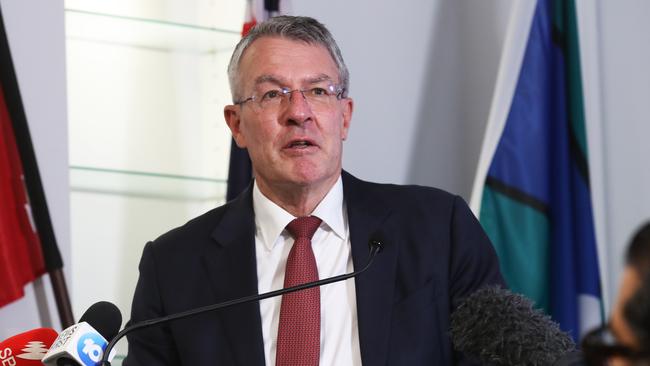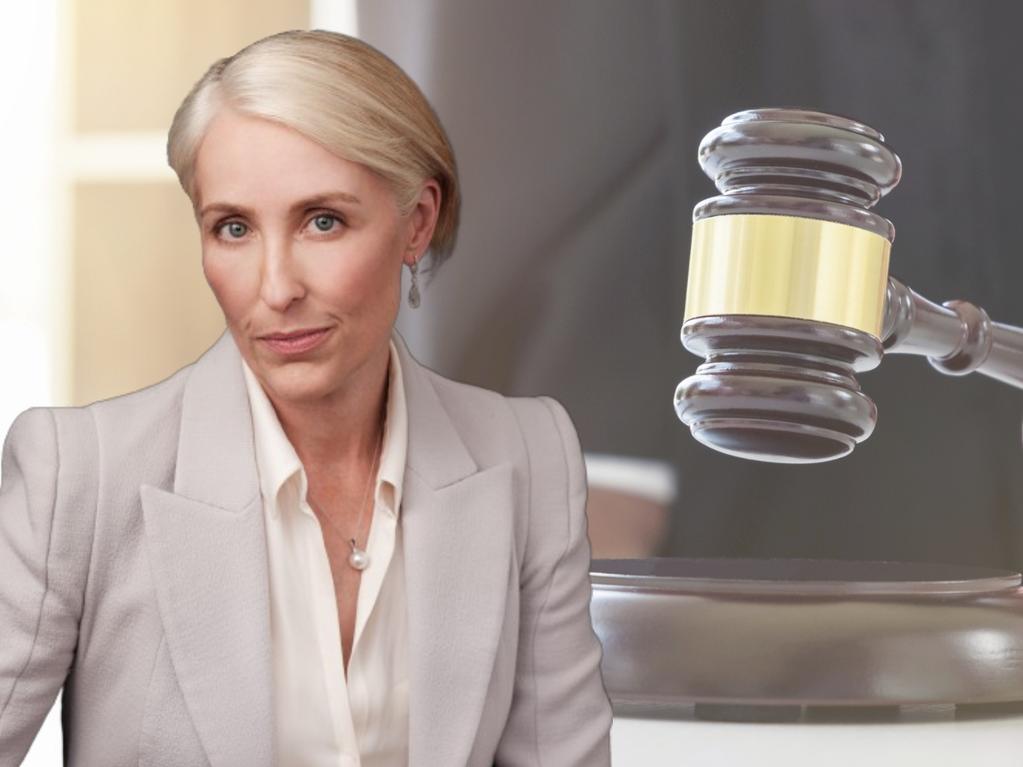Sex assault law reforms ‘kangaroo court’ nightmare
Just when you thought we might not hear any more about the Higgins-Lehrmann scandal, like a bad dream it has come back to haunt us.

This is a disastrous idea. It would result not only in negation of the rights of the accused but also no real justice for the complainant, who deserves to have rape treated as what it is: a serious crime. As Chris Merritt said on Sky News last week: “Rape is not simply a dispute between two individuals”, as is a civil case. Inevitably, using a civil standard of proof will result in unsatisfactory outcomes, as it has for Bruce Lehrmann, now branded a rapist after a defamation trial. Without the thorough standard of proof required in a criminal trial we can expect more people to be branded guilty of rape and sexual assault.
Dreyfus’s inquiry has been largely kept under the public radar. However, there are some genuine questions to be asked about whether the conviction rate in rape is too low and whether complainants are treated fairly. As for numbers of convictions, we also see the number of poor cases and false accusations. Five NSW judges have complained about the numbers of hopeless cases coming before them. Of course, one way to have few convictions is to run hopeless cases, especially in sex assault.
The report of a national ministerial-level roundtable meeting on justice responses to sexual assault convened by Dreyfus last August canvassed these issues, and features prominently in the inquiry’s terms of reference. Attendees included ministers Katy Gallagher, Amanda Rishworth and 22 non-government organisations, all from the feminist spectrum; throughout the report complainants, even future notional complainants, are referred to as “victims and survivors”.
The roundtable had some radical, even bizarre recommendations for “reform” in matters ranging from the treatment of complainants before trial to the rules of evidence in a trial. Some of the more outlandish suggestions include women-only police stations, police investigations to be “victim-led”; that is, where the investigation is driven by what “justice” looks like for the complainant – apparently, not the accused. The participants also called for the establishment of an independent civil body that conducts investigations and may reinterrogate investigations conducted by police. The treatment of defendants was also discussed, with the suggestion that the possibility of not just good character references for defendants to be produced, but bad character references too.
However, the most radical proposition is this: “The need for the inquiry to consider overhauling longstanding legal principles where needed.” This includes the defendant’s right to silence. It also includes “special” courts or tribunals for sex assault cases, which would do away with a jury and replace it with a judge and a person with “expertise” in the area. Is this the civil model – or a kangaroo court? None of this can be taken lightly given the weight Dreyfus has placed on the roundtable.
Despite the relentless left-wing, feminist, almost 50-year push to change the nature of procedure and evidence in rape trials to get more convictions, many procedurals and some difficult evidentiary issues arising from rape and sexual assault have already been dealt with. For example, much of a woman’s past sexual history, once used to besmirch her reputation and downgrade her complaint, is now inadmissable. The brutality of cross-examination has been softened and some suggestions at the roundtable would soften it further.
Some of the changes, such as the watering down of consent to the point that no one is sure if or how consent can be confirmed, are simply useless. Saxon Mullins is a director at Rape and Sexual Assault Research and Advocacy, a group represented at the roundtable. Mullins was a complainant in a high-profile rape case that ultimately failed at appeal over the issue of consent. Mullins’ views on “genuine” and “not genuine” victims are instructive. According to her, it is a false idea. “I find that so offensive … If somebody feels that they are a victim of sexual violence, they are.” And as for false claims of sexual assault: “I think this idea of false claims is so overblown. They are tiny when compared to the actual number of people who experience sexual violence in Australia.”
Feminists don’t do their cause much good to downgrade a crime by denying false or exaggerated claims or making up statistics. Nor is downgrading of evidentiary standards and the presumption of innocence for the accused a good idea. Yet feminists are not worried that this will corrupt the right to a fair trial for any crime, not only rape. The erosion of the presumption of innocence is an important issue, no matter who you are. For that reason, a public conference will be held in Sydney in August, hosted by Australians for Science and Freedom:







Just when you thought we might not hear any more about the Higgins-Lehrmann scandal, like a bad dream it has come back to haunt us, and if the consequences of the latest episode succeed it will be a real nightmare scenario. There are attempts afoot to drastically change the onus of proof in sexual assault cases, so the defendant’s right to a fair trial will be compromised. As reported in The Australian (25/6), Australian Law Reform Commission president Mordecai Bromberg and commissioner Marcia Neave announced that the wide-ranging ALRC inquiry instigated by Attorney-General Mark Dreyfus into sexual assault laws might “deal with every issue” arising from the Higgins-Lehrmann case and “examine using” ‘civil remedies’ with a lower standard of proof” to satisfy complainants in rape and sexual assault cases.